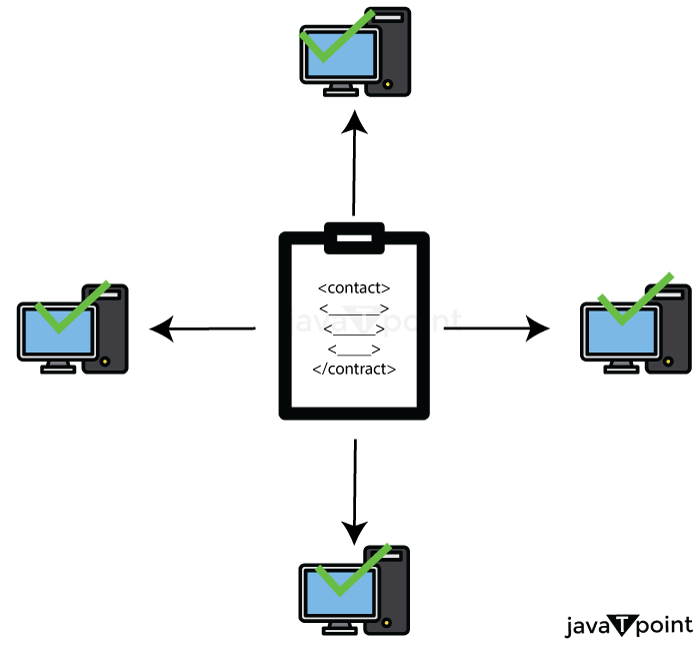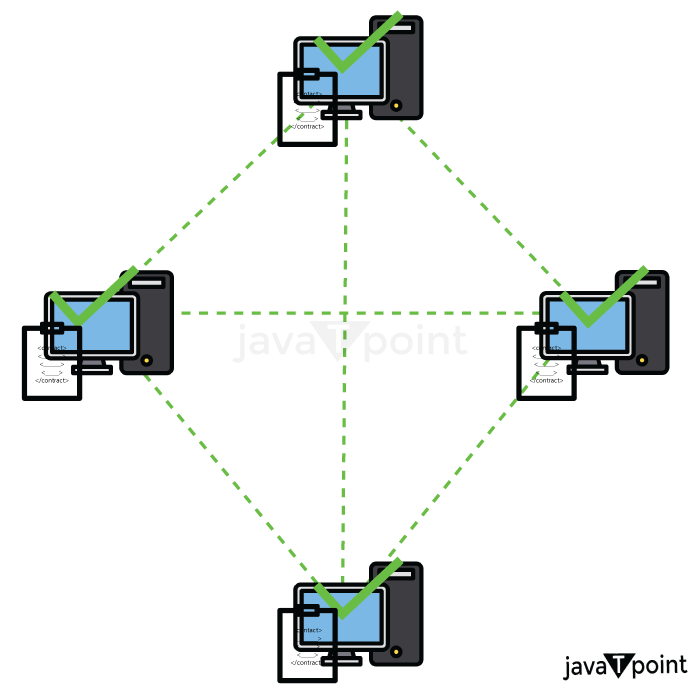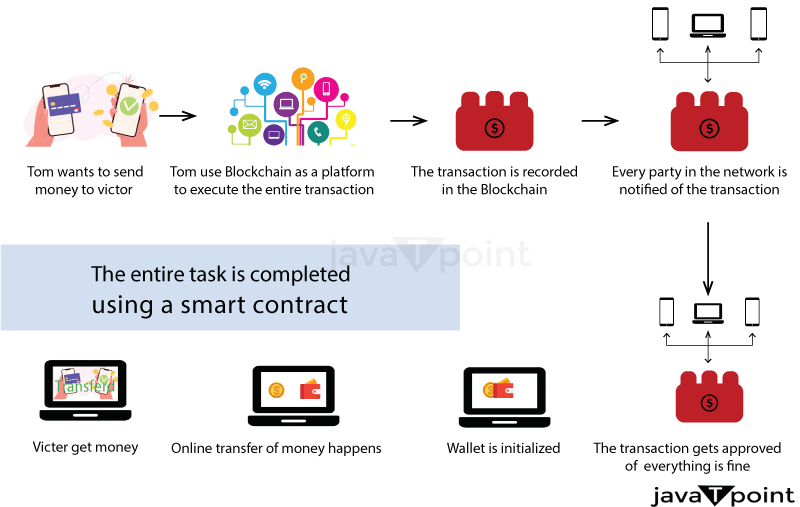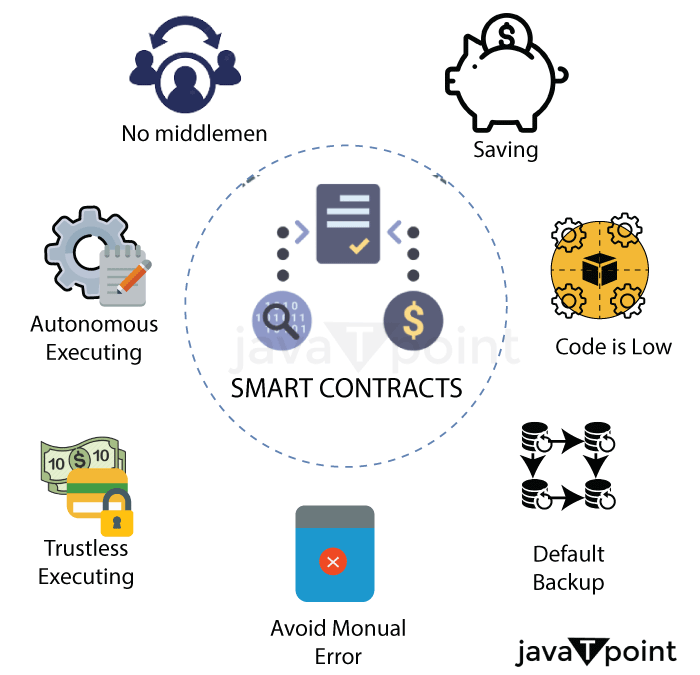Smart contracts in blockchainThe majority of commercial transactions involve the signing of documents that outline the terms and circumstances of the arrangement. Due to the handwriting, there is a potential that both parties will perceive these contacts differently. The likelihood of a dispute growing will increase as the contract's complexity does. As a result, having a neutral third party that can enact legislation and expedites the agreement process becomes increasingly important over time. 
Intelligent contracts are short pieces of logic-based code that run when specific criteria are met. You should be conscious that smart contracts have been developed for secure blockchain. Smart contracts are used everywhere now, which increases their significance. To keep up with technology, people are learning about blockchain smart contracts. What is a smart contract?The smart contract represents an authenticated contract with all the necessary information and has been agreed upon by both parties. Its reasoning includes conclusions for any scenario that could arise under an agreement. The agreement includes scenarios for both outcomes, making it more straightforward for you to settle disagreements whether it succeeds or fails. Typically connected to Ethereum, these contracts were explicitly created to support the use of smart contracts. However, you can easily apply this approach to any blockchain network or platform. The smart contract's code specifies how to guarantee agreement performance. Based on the particulars set on the contract, smart contracts are automatic and self-explanatory. The distributed ledger system (DLT) used by the blockchain, which enables data to be kept globally across several servers, mainly depends on those databases to validate a transaction. Smart contracts are enticing because they eliminate administrative burdens. 
When the established conditions of a smart contract are satisfied, funds are automatically transferred from a single party to another. This is represented by the terms and constraints expressed in codes. For instance, if both parties agree to exchange a cryptocurrency, the exchange will be recorded on the blockchain using the smart contract's protocol. Smart contracts are created using the Solidity and Go programming languages and are immutable and irrevocable. However, despite their name, smart contracts are not enforceable in court. Their main responsibility is to implement business logic through programming that executes different operations, processes, or transactions that are part of them depending on certain criteria. Different kinds of smart contracts:
Smart Contract's HistoryThe smart contract was first introduced to the world by American technologist Nick Szabo in 1994. The main objectives of smart contracts, according to him, are to "satisfy common commercial conditions of use, minimize both nefarious and unintentional errors, and remove the need for trustworthy third parties." Smart contracts are a computerized transaction protocol that performs the terms of a contract. 
Smart contracts' foundation was laid by blockchain. The primary protocol, smart contracts, which define the requirements that must be met when transferring bitcoins between users of the network, such as having sufficient cash to make the transfer, is also supported by bitcoin. This reasoning is seen in food machines where a particular code releases a specific snack. Nick advocated replicating asset databases and executing contracts employing encrypted hash chains & Byzantine fault-tolerant mechanisms when he initially coined the term "Smart Contracts" in 1994. Additionally, he created BitGold, which was Bitcoin's direct forerunner. I stumbled discovered a video of Nick speaking on computer science as a branch of law in the early 1990s at a US university, noting the potential of smart contracts. This was much before the internet or the global web became widely used. Multi-signature transactions were a brand-new smart contract that was introduced in 2012. For a transaction to be valid, a predetermined number of individuals must sign it using private keys. This is done to increase the funds' security, especially in the event that the private keys are stolen or misplaced. Blockchains have introduced new programmed conditions (also known as operation codes, or opcodes) as they continue their experiment. Ethereum, a novel blockchain for programmable smart contracts, was introduced in 2015. Unlike blockchain technology, the Ether smart contract allows for simultaneous execution of numerous separate smart contracts. What Function Do Blockchain Smart Contracts Serve?Customers would need to transmit transactions to the blockchain in order to launch smart contracts because the program operates on the blockchain. Only then can the program be performed when the codes have been established and the logic secured. Smart contracts often aim to stream commercial transactions among parties by doing away with the go-betweens present in conventional business processes. These agreements seek to lessen the complexity of typical contracts, the possibility of errors, and payment delays while maintaining their validity and reliability. Its most characteristic benefit is that it makes it possible to conduct reliable transactions without the use of intermediaries. How do Blockchain Smart Contracts are Created?A computer mechanism known as a "smart contract" is created to form, manage, and communicate details about the asset's owner. It is true that a program used to enable, confirm, or carry out reliable transactions autonomously operates on the Ethereum blockchain. 
We first need to comprehend what makes up a smart contract in order to understand how it functions. Signatures: To proceed with the suggested regulations and conditions, a minimum of two parties must give their approval. Identify the contract's topic critically : The topic needs to fit in with the digital contract environment. When using the terms, be precise. The terminology must be clear and thoroughly defined. The agreement should be in precise mathematical terms consistent with the precise language, for instance, as Ethereum's smart contract system relies on Solidity, also known and Serpent programming language. You can then enter the blockchain-based smart contract once these conditions have been established. Before the terms of the agreement are implemented in the blockchain, however, they are subject to negotiation. On the basis of an understanding between two users that is maintained on the blockchain, smart contracts will often automatically initiate an action. Accordingly, a smart contract will control the transfers when a seller desires to sell a BTC until the BTC has been successfully transferred from one individual to another. The money will be released at that point, and nothing will change. In addition, a public database will list and keep all of the transaction's information. Smart contracts' characteristics and traitsSmart contracts are well-liked because of the following traits:
How Are Smart Contracts Operated?
Smart contracts are just pieces of software that describe computer protocols or, to put it another way, a core component of technology. They serve to detail every agreement condition reached between blockchain transaction parties. When these prerequisites are met, a smart contract will immediately execute a transaction. As it depends on a publicly accessible ledger whereby anyone with interest can verify all transactions, a system built around the blockchain enables its members to remove intermediaries and wasteful paperwork. The paramount necessity here is to use appropriate programming languages and mathematical methods to specify all the agreement criteria. Each node in the blockchain's dispersed network of nodes stores the details of every transaction. One would need to take control of over fifty percent of these various nodes in order to reverse a transaction or double-spend money.
Advantages of Smart ContractsSmart contracts are attractive for a number of reasons, including: 
Smart Contracts' Limitations and Difficulties
ConclusionMost firms now utilize intelligent agreements to automate processes and save time and money. A smart contract has made the business process more efficient. Because intelligent agreements are constructed on blockchain technology, they have blockchain benefits such as security, tamper-proofing, autonomy, business reasoning, security, and a lot more. We discussed how to use smart contracts in this article.
Next TopicBlockchain and data privacy
|
 For Videos Join Our Youtube Channel: Join Now
For Videos Join Our Youtube Channel: Join Now
Feedback
- Send your Feedback to [email protected]
Help Others, Please Share










